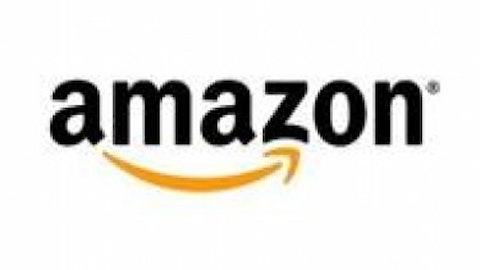When Microsoft Corporation (NASDAQ:MSFT) introduced the Xbox One, the features it touted seemed completely misaligned with its core gamer customers. Sony Corporation (ADR) (NYSE:SNE), however, struck hard and aimed its new PlayStation 4 squarely at hard-core gamers. Microsoft is already in catch-up mode.
Oops…
Microsoft Corporation (NASDAQ:MSFT) launched its marketing efforts for its new Xbox game system by stressing it as a living room media hub. For example, customers can use it to replace their cable box, it will play DVDs, and it will stream video over the Internet. These are all great features, but the people most interested in the new game system care more about gameplay than media capabilities.
However, the news that the Xbox would limit the ability to buy, sell, and trade physical copies of video games sent bolts of anger through the gamer ranks. Around 25% of GameStop Corp. (NYSE:GME)’s business comes from the used category. Its strength in this market is a key differentiation from competitors like Wal-Mart Stores, Inc. (NYSE:WMT). The magnitude of this segment at the leading video game chain shows just how important the used game market is to customers.
Gamers quickly started to bash Microsoft Corporation (NASDAQ:MSFT) for this decision. Sony Corporation (ADR) (NYSE:SNE), meanwhile, announced that the new PlayStation would have no such limits. According to The Wall Street Journal, after Sony announced it wouldn’t place limits on physical games, PlayStation 4 preorders rocketed the device to the top of Amazon.com, Inc. (NASDAQ:AMZN)‘s video game sales chart.
We Changed Our Mind
Microsoft Corporation (NASDAQ:MSFT) quickly reversed course, removing the limitations on physical games. While gamers can rejoice at the backpedaling, it’s a sign that Microsoft isn’t hearing its customers. The release of Windows 8 is another example. The PC operating system removed the “start” button that Microsoft had trained customers to use. So many users felt lost that Microsoft is planning updates to return something similar to the “start” button to the new OS.
Microsoft Corporation (NASDAQ:MSFT)’s Entertainment & Devices division accounts for about 13% of the top-line. While the Xbox isn’t a make or break product, it is important to the company’s business. Moreover, the fact that Xbox overtook Sony as the top selling game machine over the last couple of years provided Microsoft with bragging rights. If this miscue undermines the Xbox One launch, Microsoft’s positive steps to build its mobile business could quickly be overshadowed.
An Opportunity?
That, however, could present a buying opportunity for long-term investors. Microsoft’s top-line has been growing strongly in recent years despite the company’s lack of mobile penetration. And with a suite of new offerings in the mobile and PC space creating a Windows ecosystem, there looks to be a light at the end of the mobile tunnel.
Yielding around 2.7%, growth and income investors should take a look. While the ship doesn’t turn as fast as it used to, don’t mistake Microsoft’s slow shift into mobile as a sign of long-term failure. Consider any Xbox related weakness a buying opportunity.
Needing a Win
Sony, of course, will be the big beneficiary of any weakness in Microsoft’s Xbox business. That’s a good thing, too, because the company could use some positive news. Sony’s struggling electronics arm has left the company posting red ink for the past four years. The current year looks likely to bring that tally up to five.
The company is currently dealing with hedge fund manager Daniel Loeb’s call for a corporate breakup, separating the entertainment arm from the electronics group. While that would be great for the entertainment division, which is performing relatively well, it would make a turnaround in the electronics division much harder.
The Game group accounted for 10% of Sony’s revenues in fiscal 2013. If it scores a big win here it won’t put earnings in the black, but it would help to silence Loeb. That said, the company’s content division is a hidden gem, and the stock should interest investors looking for a turnaround opportunity.
Only a Near-Term Win
GameStop Corp. (NYSE:GME), meanwhile, is the biggest near-term winner from Microsoft’s used game course change. However, the long-term trend toward Internet content delivery has slowed, not altered. The company’s results should get a boost from trade-ins toward the end of the year and into 2014. That should help reverse the recently weak top-line.
That said, long-term investors should tread cautiously. The shares have already begun to head higher in anticipation of the new console launches, and the company still faces material long-term headwinds.
How Much Damage?
While Microsoft can handle a few hard knocks, the wounds it is licking right now are self inflicted. That could be good for long-term investors willing to look past the near-term problems. However, coupled with the “start” button issue, it is starting to look like Microsoft isn’t reading its customers very well. Playing catch too often is a problem. Investors need to keep an eye on this issue but should still take a look at the stock.
The article Xbox One Is Already Playing Catch-Up originally appeared on Fool.com and is written by Reuben Brewer.
Reuben Brewer has no position in any stocks mentioned. The Motley Fool owns shares of GameStop and Microsoft. Reuben is a member of The Motley Fool Blog Network — entries represent the personal opinion of the blogger and are not formally edited.
Copyright © 1995 – 2013 The Motley Fool, LLC. All rights reserved. The Motley Fool has a disclosure policy.





